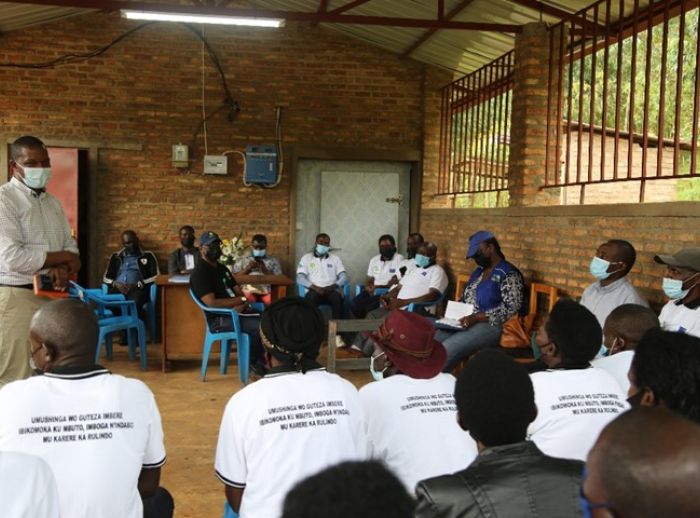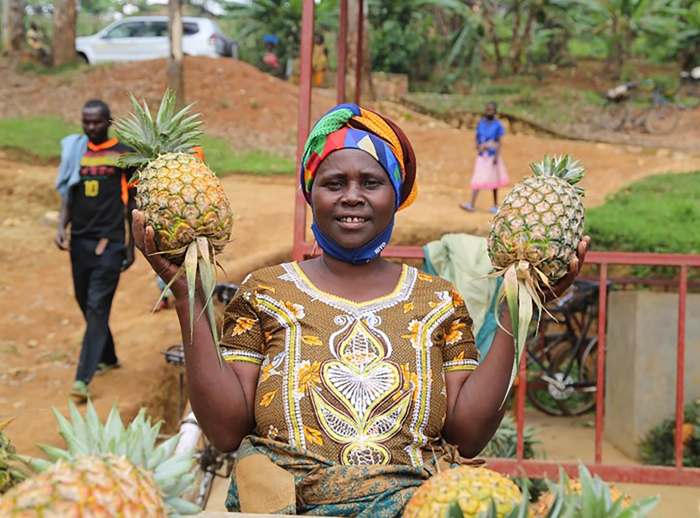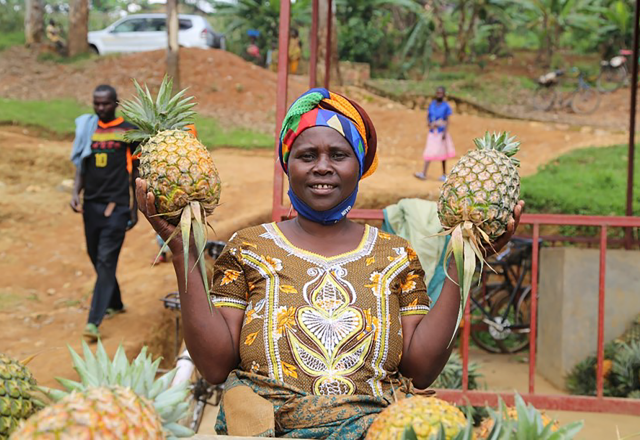In order to increase returns for small holder horticulture farmers and support business ser-vices for farmers’ produce, the project supported and strengthened farmers’ access to post-harvest and storage facilities through establishing cold room facilities and collection and selling centers.

Given the perishability state of flowers, cold rooms storage will facilitate farmers with space for bulk handling, between production and marketing. It will allow farmers to preserve their products in a fresh state by maintaining adequate temperature and humidity within the storage system.
Jean Pierre Havugimana is the president of the farmer cooperative (COZAMASHYO) producing flowers in Shyorongi sector of Rulindo district. According to Havugimana, he and his col-leagues used to transport flowers to the nearest facility for flower treatment, and that made transport very expensive. Thanks to the HVC project, they expect a lot of facilitation in flower handling with the cold room established right near their farms.

“We will cut off the transport costs involved with the flower handling and will improve the quality of flowers we send on the market, there-fore, obtain better prices from our buyers and increase income
Furthermore, the project has sup-ported farmers to renovate and establish new collection centers for short-term storage mainly to provide flexibility in marketing such as when awaiting transport and when buyers are not immediately available. Access to these facilities helped farmers to learn and apply new postharvest handling practices, reduced post-harvest losses, and increase their incomes by collecting their harvest and selling it together.

The pineapple collection and selling center in Nyamagabe district has helped farmers to sell at a good market price and to store the rest of the pineapples in good conditions while waiting for other buyers/clients.
Pelagie Uwamukijije is a mother of 6 children and used to one pineapple on Rwf 700 equivalent to £70 grow pineapples traditionally and didn’t get enough yields.

“Even the small harvest I used to obtain, I sold it directly on the farm and buyers would give a low price because they knew I had nowhere to store my harvest and it would spoil if I didn’t sell it quickly ”.
According to her, things are turning out well because she was trained by the HVC project through our partner COCOF on good modern practices for pineapple production and increased yields. She used to harvest around 500 pineapples on 3 hectares of land but after applying modern techniques in production, she harvests around 2000 pineapples on the same land. she brings pineapples to the collection center sells some and put the rest at the store to sell them the next day while they are still fresh. It is her second year applying modern technics in pineapple production and selling at the collection center, her family’s livelihood has never been the same since then.
“ I and my husband are able to pay for our children’s school fees and we managed to build a house . We lack nothing at home”.— Pelagie
When we met her, she told us that she was selling Nyagatare District is one of the East-ern region's districts prone to pro-longed dry season and drought.

The project collaborated with the district authorities and our partner Duterim-bere to establish a solar irrigation system in Gishuro Integrated Devel-opment Program (IDP) model village. The established irrigation system is able to irrigate 10 hectares of pineap-ples and 5 hectares of vegetables and 20 hectares of the rest of the crops. The system benefits 64 households in Nyagatare.

This project is funded by the European Union




